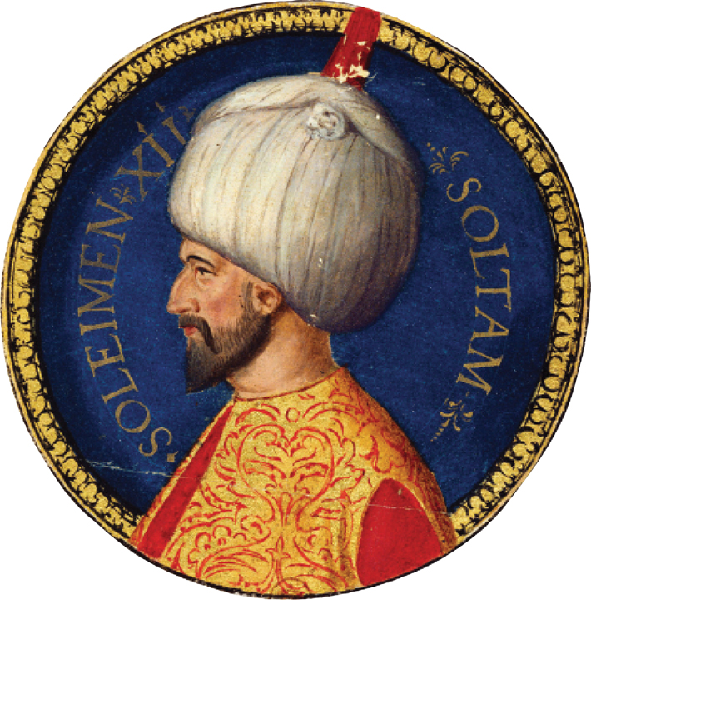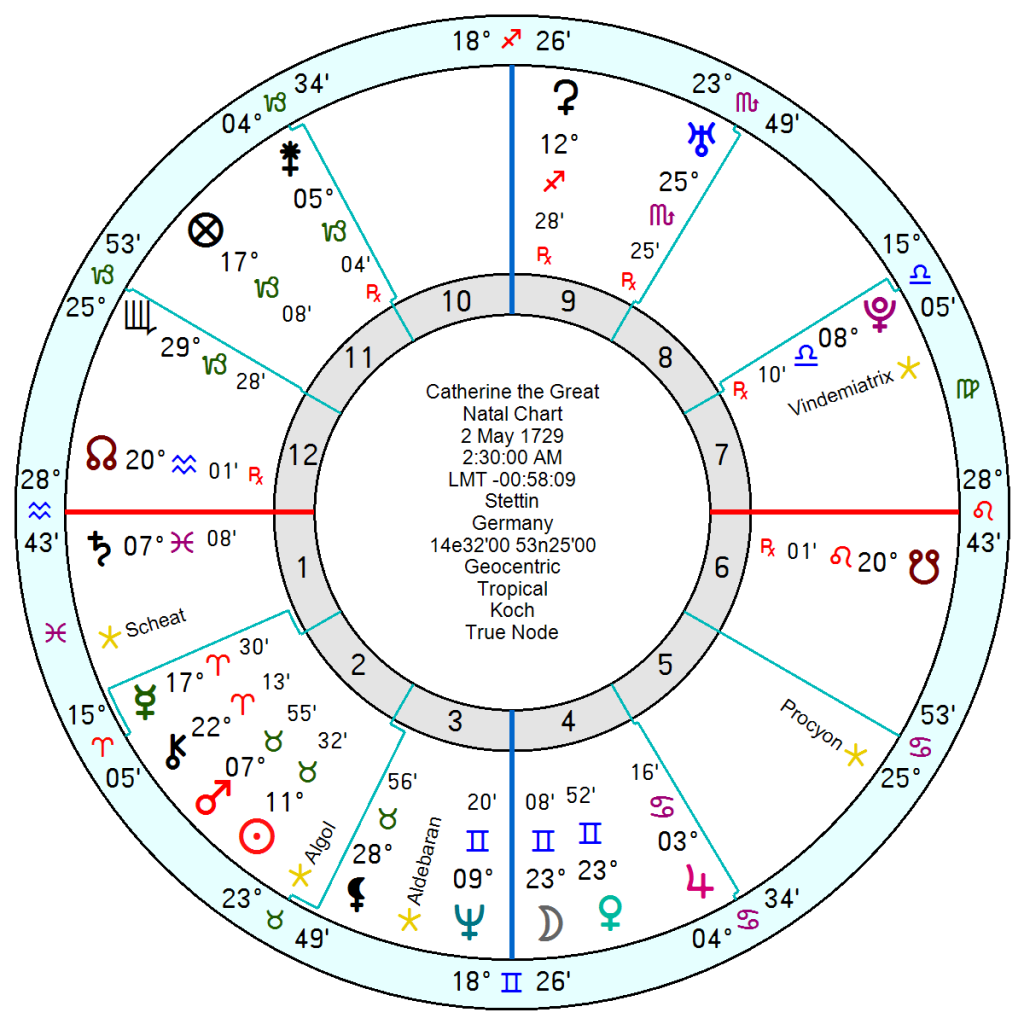


Suleiman the Magnificent who expanded the Ottoman Empire to become the pre-eminent influence in central and eastern Europe, the Middle East and North Africa in the 16th Century, ruled during Pluto in Capricorn and in Aquarius and finally giving way to old age midway through Pluto in Pisces. His early rule was dominated by military land grabs, was gory and flamboyant but he mellowed during his middle reign to become Suleiman The Lawgiver.
A new Book In The Golden Throne by Christopher de Bellaigue vividly evokes his reign.
Born 6 November 1494 he was a Sun Scorpio with Pluto in Scorpio square Uranus in Aquarius and Neptune in early Capricorn. By the time he acceded the throne Pluto was three years into Capricorn with Neptune about to leave Aquarius. He exited when Pluto in mid Pisces was square Uranus opposition Neptune.
During the next Pluto in Capricorn/Aquarius Catherine the Great of Russia came to the throne. She usurped her husband in a coup and during her long reign, Russia experienced a renaissance of culture and sciences, which led to the founding of many new cities, universities, and theatres, along with large-scale immigration from the rest of Europe and the recognition of Russia as one of the great powers of Europe.
Born 2 May 1729 2.30am she was a Sun Mars in Taurus sextile Saturn in Pisces inconjunct Pluto, with Pluto in a pushily confident square to Jupiter and trine Neptune.
She was crowned when Pluto was at zero degrees Capricorn and died when Pluto was in final degree Aquarius.
Roll back a few Pluto in Capricorn and Aquarius, and it gets to Charlemagne, who united most of Western and Central Europe. His reign was marked by political and social changes that had lasting influence on Europe throughout the Middle Ages.
He acceded when Pluto was in Sagittarius in 768 and reigned through Pluto in Capricorn and Aquarius, dying when Pluto was in the final degrees of Aquarius.
This is only of passing interest since these were different days – but the Pluto in Capricorn and Aquarius eras did seem to have an outsize influence on the culture of the times especially in Europe.

This is a fascinating and thought-provoking article! I’ve always been intrigued by the connections between astrology and historical events, and your analysis of Suleiman, Catherine, and Charlemagne in relation to Pluto’s transit through Capricorn and Aquarius is truly captivating. I appreciate how you’ve tied together astrological insights with historical context, making it easy to see the patterns. The way you’ve explained Pluto’s transformative energy and its impact on leadership, power structures, and societal change is both insightful and engaging. I also found the comparisons between these historical figures and the current astrological shifts very compelling; it’s a great reminder of how history often repeats itself. Thanks for sharing such a unique and well-researched perspective, it’s given me a lot to think about and has deepened my understanding of astrology’s role in shaping our world. Keep up the fantastic work, and I look forward to reading more of your insightful analyses!
Marjorie, are you comparing Trump to those great world leaders? I would think not. This post appears to be an argument for a long-term MAGA reign, but perhaps you are thinking about Xi.
Of course not. We live in different days from ye olden times but these cycles repeat.
Can you take a look at Zelensky’s chart. He has Sun at 5 Aquarius, and tr Pluto at 2 Aquarius 43 is approaching a conjunction.
Also – Zelensky seems to play an outsize role in US politics. In 2019/20 (when Pluto was in Cap), Trump got impeached for trying to blackmail Zelensky into releasing info on Hunter Biden. At the time, Zelensky was the new president of an unimportant eastern european country.
There seems to be some sort of destiny in play.
See Europe No vision ahead below
Interesting thoughts, Marjorie. There’s also the period of 305 AD to 330. Constantine ruled during this period as Holy Roman Emperor and his conversion to Christianity heralded the transformation of his empire from polytheism to monotheism as he constructed churches, commissioned handwritten bibles, refined Christian doctrine and turned the traditional Pagan festivals into Christian ones. His ideas about a unified Empire, all singing from the same hymn sheet so to speak was ideological and Aquarian in nature, as he held councils with the leading theologians of the time and of course, it was during this period in 325 AD that the famous Council of Nicea took place.